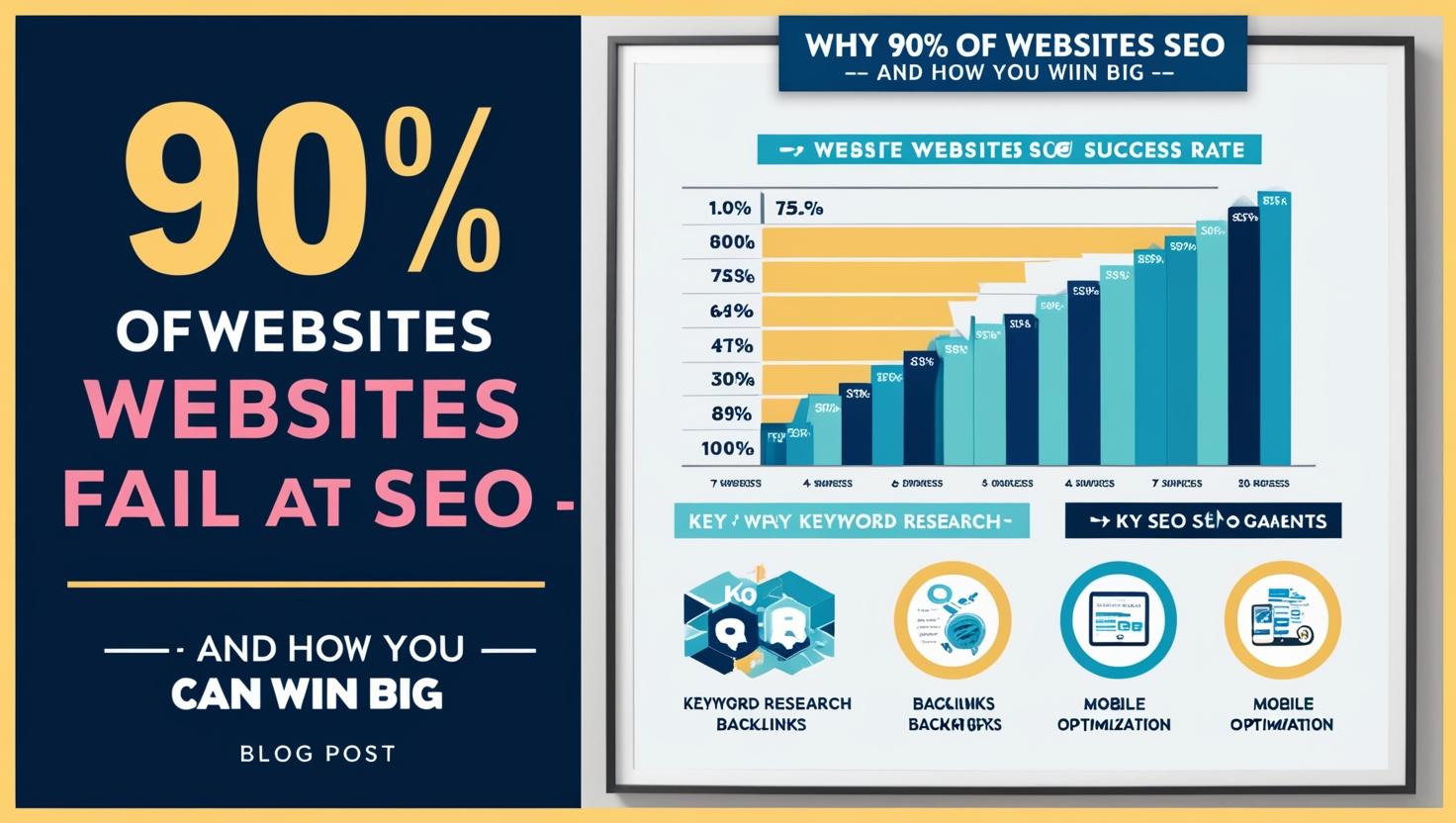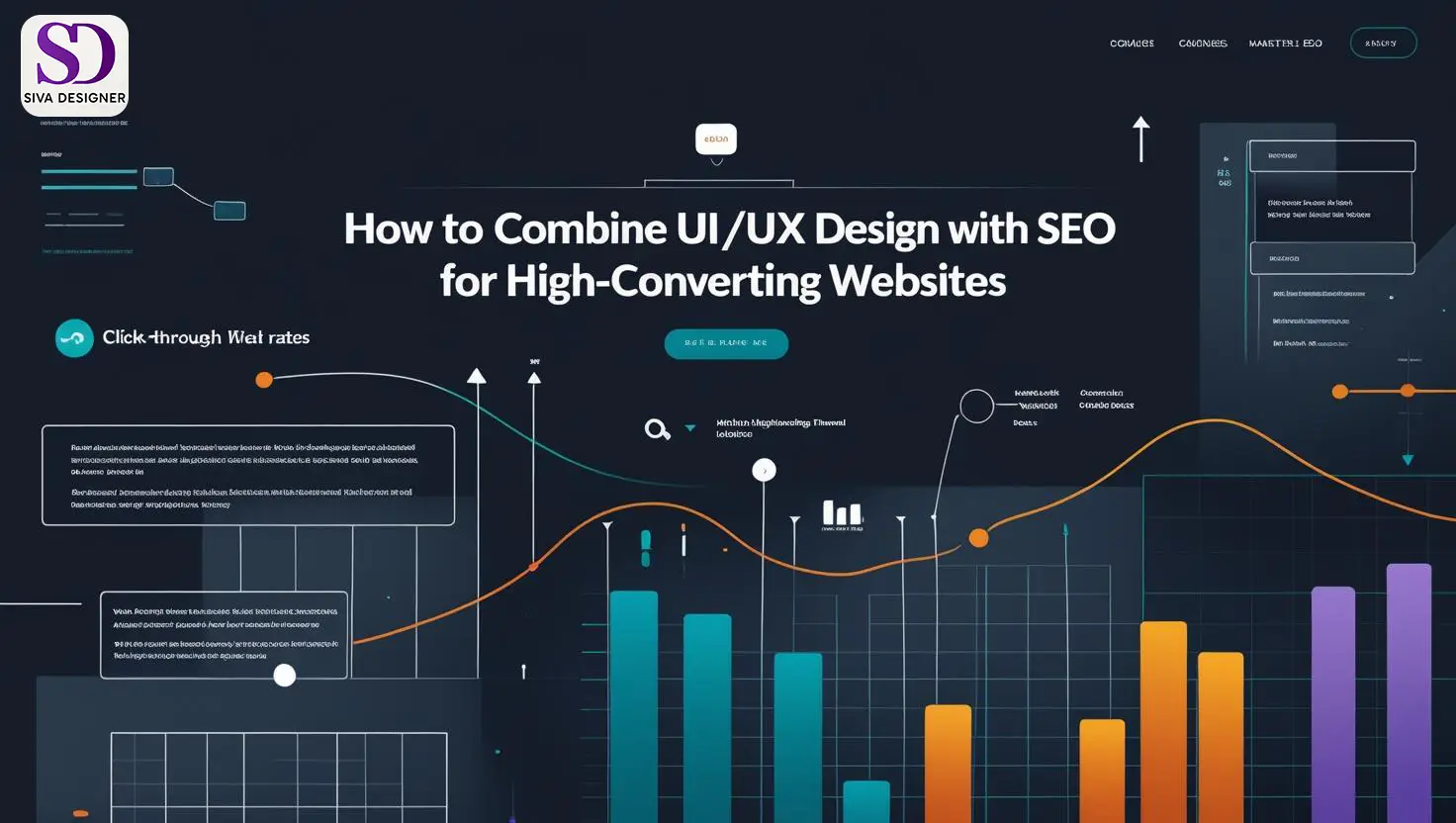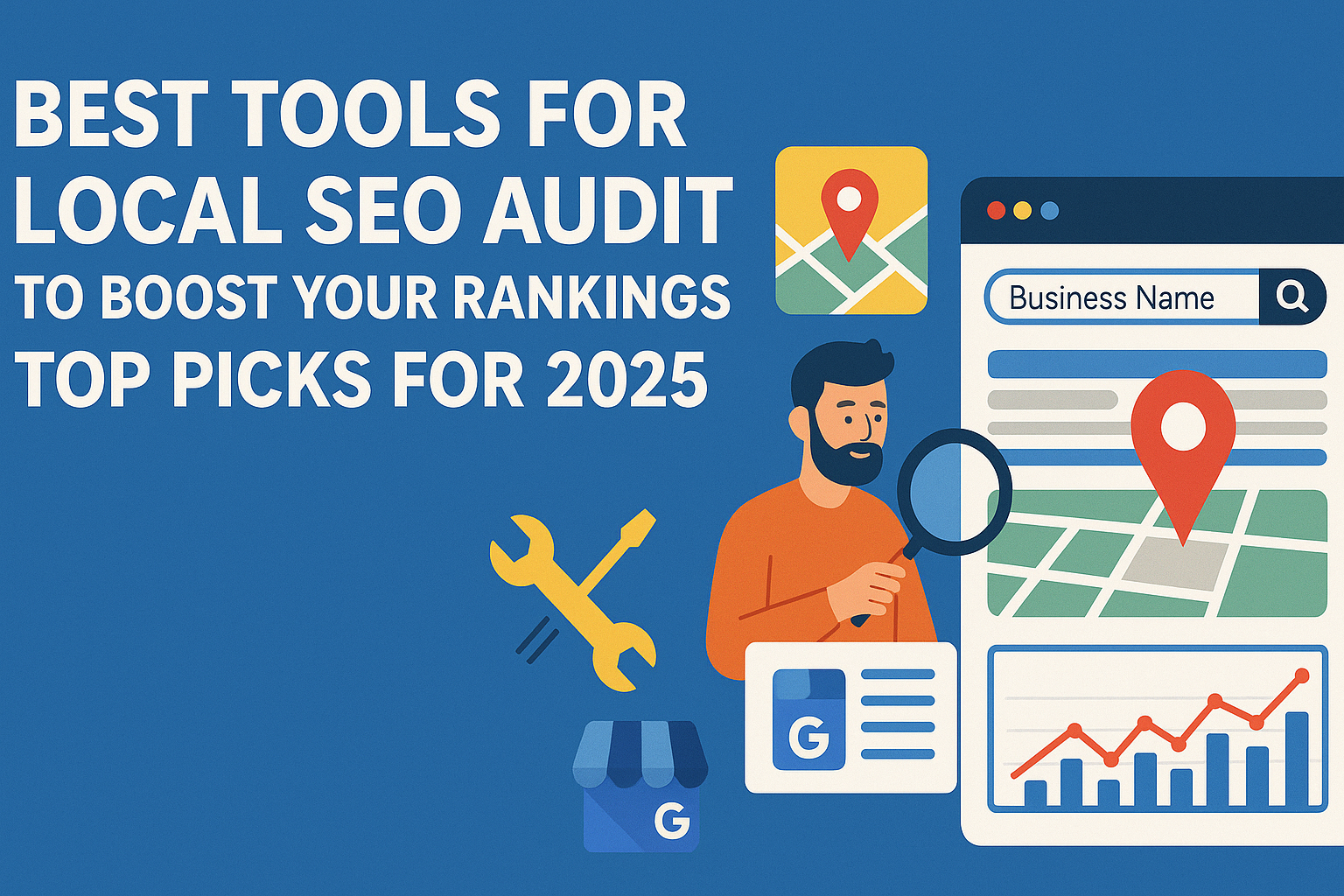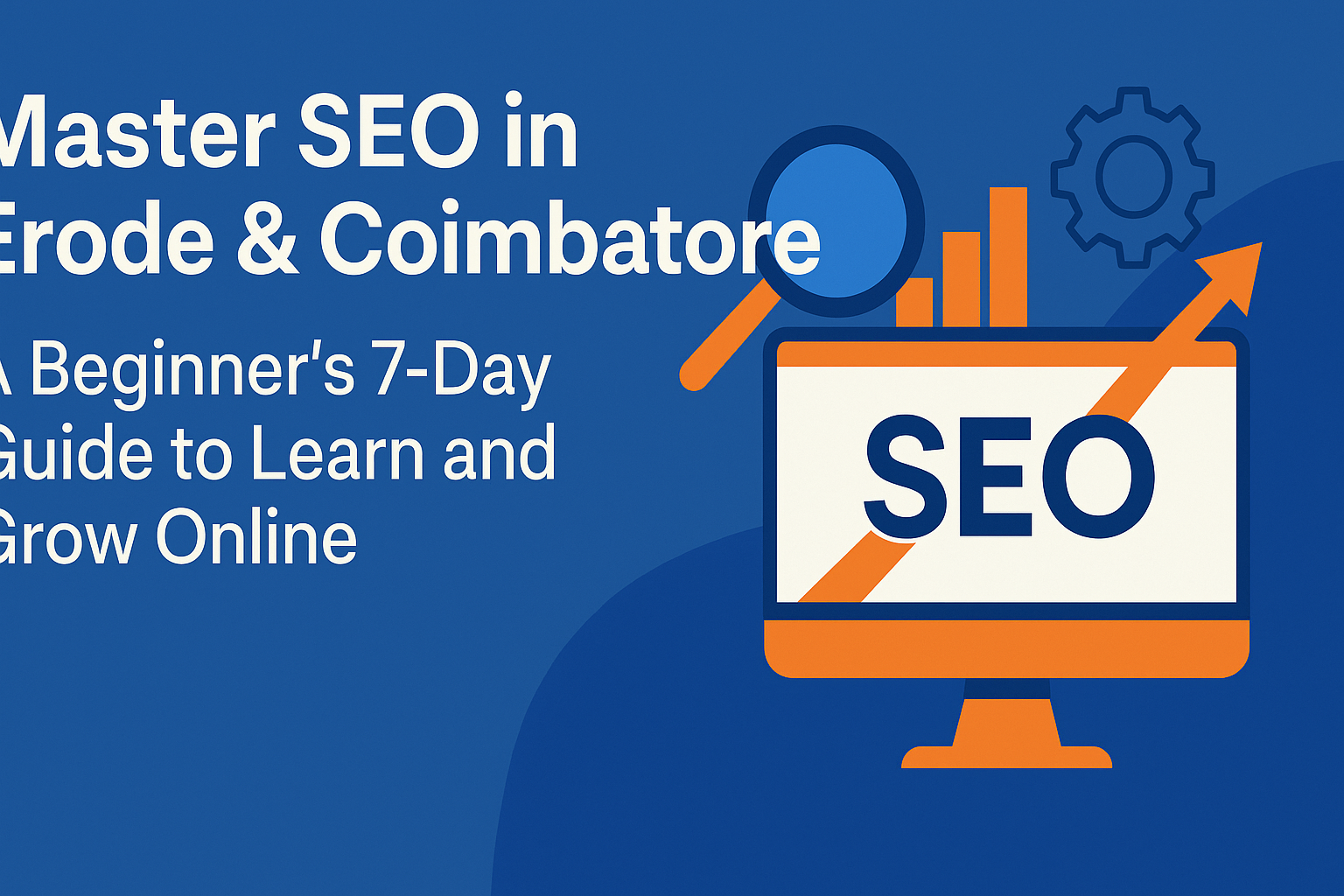Why 90% of Websites Fail at SEO — And How You Can Win Big
Introduction: The Harsh Reality of SEO
Ever wonder why so many websites just don't show up on Google’s first page? Rephrase the sentence to make it 100% original and fully optimized for SEO. But hey, don't lose heart! Once you know why, you can dodge the common pitfalls and climb your way to the top like a pro. Ready to crack the code? Let’s dive in.
Common Reasons Why Websites Fail at SEO
Lack of Clear SEO Strategy
Diving into SEO without a plan is like embarking on a journey without a map. You might move, but you’ll end up nowhere meaningful. Most websites fail because they lack a structured plan that aligns SEO goals with their business objectives.
Poor Keyword Research
Choosing keywords based only on guesses is a major error that can hurt your SEO. If you're targeting the wrong words, you're either competing against giants or attracting the wrong audience altogether.
Ignoring On-Page SEO Essentials
You can’t just toss some words on a page and call it a day. Proper title tags, meta descriptions, header tags, and keyword placements are like breadcrumbs for Google. Ignore them, and you’re basically invisible.
Neglecting Mobile Optimization
More than 60% of global web visits originate from smartphones and tablets, highlighting the importance of mobile-friendly design for SEO and digital growth. Failing to optimize your website for mobile devices drives potential visitors away—and Google takes notice of this oversight.
Slow Website Speed
Picture landing on a website that crawls to load—frustrating enough to make visitors leave instantly. Annoying, right? Site speed impacts rankings—slow-loading pages plummet in search results like an anchor in deep water.
Low-Quality Content
Content isn’t just king—it’s the entire royal court. Thin, duplicated, or keyword-stuffed content drives users and search engines away.
Weak Backlink Profile
Backlinks are like street cred for your website. No one’s vouching for you? Google takes that as a hint you're not worth showing.
Not Understanding Search Intent
You might rank for a keyword, but if your content doesn’t solve what users actually want, they'll bounce—and high bounce rates spell doom.
Outdated SEO Practices
Still using keyword stuffing, link farms, or shady tactics? Google's smarter now, and sticking to outdated methods is a shortcut to being deindexed.
How You Can Win Big at SEO
Build a Solid SEO Strategy
Start with a goal. Is it traffic? Leads? Sales? Then build a detailed plan: technical SEO, content marketing, link building, the whole shebang.
Conduct Effective Keyword Research
Use tools like Ahrefs, SEMrush, or Ubersuggest. Discover untapped, high-potential keywords that drive traffic and improve search rankings with ease. Bonus tip? Focus on long-tail keywords—they’re gold mines!
Optimize On-Page Elements
Treat your title tags like headlines. Craft juicy meta descriptions. Use headers (H1, H2, H3) smartly. And always, always include your keywords naturally.
Prioritize Mobile-First Design
Focus on a small screen experience first—large buttons, simple navigation, and fast loading times. Tailoring your website for mobile not only boosts search engine rankings but also enhances the overall user experience.
Speed Up Your Website
Optimize your site speed by compressing images, enabling browser caching, and choosing a high-performance hosting provider. A few seconds saved = a major SEO boost.
Create High-Quality, Valuable Content
Answer questions. Solve problems. Make your articles longer, richer, and more helpful than anything else out there. Basically, become the go-to source.
Develop a Strong Backlink Strategy
Guest posting, broken link building, HARO (Help A Reporter Out)—there are plenty of ways to earn powerful backlinks without begging for them.
Focus on User Experience (UX)
Google values satisfied users. Streamlined navigation, fast loading speeds, and valuable content turn a visit to your site into a pleasant experience, not a hassle.
Stay Updated with SEO Trends
SEO is like fashion—it changes constantly. Follow blogs, join communities, attend webinars. Stay sharp, or get left behind.
The Importance of Analytics and Monitoring
You can't improve what you don't measure. Track and evaluate your SEO effectiveness with tools like Google Analytics, Google Search Console, and other specialized ranking monitors. Analyze what's effective and what isn't, then make adjustments as needed.
The Power of Patience in SEO Success
SEO is a marathon, not a sprint. It takes time to see results—sometimes months. But if you stay consistent, the rewards can be massive and long-lasting.
Conclusion: Turning SEO Failure into SEO Victory
"Why do 90% of websites struggle with SEO? It’s simple—they overlook the fundamentals: lack of a clear strategy, weak content, bad user experience, and more. But now you know better! Start by getting the foundation right, stay updated, and focus on giving real value. SEO isn't magic—it's just smart, steady work. Play it right, and you'll not just win—you’ll dominate!
FAQs
Why is SEO a long-term strategy?
Establishing trust and authority with search engines is a long-term SEO strategy—much like nurturing a tree, it demands consistent effort, attention, and patience before it fully flourishes.
How can I find the best search keywords to improve my site's visibility?
Use keyword research tools, study your competitors, and focus on what your audience is actually searching for, not just what sounds good.
How important are backlinks for SEO?
Very important! Backlinks act as recommendations from other sites, signaling to Google that your content is trustworthy and deserving of a higher rank.
Should you manage your own SEO strategy or hire an expert to achieve peak search rankings?
You can definitely start on your own if you have the time and willingness to learn. But for faster and more complex results, hiring an expert can be a smart move.
How often should I update my SEO strategy?
At least every 3-6 months. Google updates its algorithms constantly, and staying ahead means reviewing and tweaking your strategy regularly.




0 Comment(s)
Be the first to leave a comment!